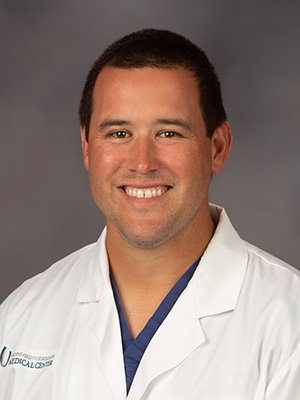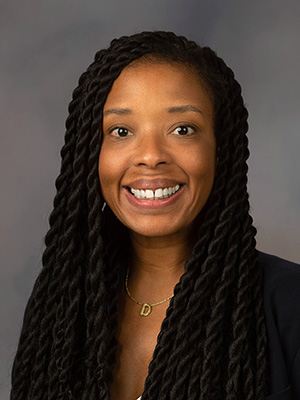- SOM
- Departments and Offices
- SOM Departments
- Medicine
- Education Programs
- Student Programs
- M3 Year
M3 Year
- Department of Medicine
- About Department of Medicine
-
Specialties
- Cardiology
- Clinical Immunology
- Digestive Diseases
- Endocrinology
- General Internal Medicine
- Geriatrics
- Hematology and Oncology
- Hospital Medicine
- Infectious Diseases
- Nephrology
- Palliative and Supportive Care
- Pulmonary, Critical Care and Sleep Medicine
- Genetics and Genomics
-
Education Programs
- Student Programs
-
Internal Medicine Residency Program
- Internal Medicine Residency Program Home
- About the Program
- Residents
- Applicants
- Social Media
- Medicine/Pediatrics Residency Program
- Fellowship Programs
- Board Review Course
- Research
Internal Medicine Clerkship
We place a great emphasis on our student programs. Medical student education is of vital importance to our department, and we take pride in the many courses that we offer.
At the heart of our student programs is the third-year (M3) Internal Medicine Clerkship. The purpose of the third-year program is to expand the student’s medical knowledge of internal medicine and develop insight into the diagnosis and treatment of the diseases inherent to the practice of internal medicine. A complete diagnosis is composed of the anatomy, pathophysiology, and clinical manifestations of a disease process. It is derived from a thorough understanding of the history and physical examination incorporated with the correct data that is collected from the patient.
Teaching methods
Activities
The major area of responsibility of the junior medical student is the clinical rotation which accounts for half of the student’s final grade. The third-year student is assigned to one of the following rotations:
- General medical wards at University Hospital and Veteran’s Hospital;
- General medical wards at University Hospital and subspecialty inpatient wards at University Hospital;
- General medical wards at Veteran’s Hospital and subspecialty inpatient wards at University Hospital.
The subspecialty inpatient wards consist of cardiology, geriatrics, hematology, or oncology. The student is assigned to a house staff team for a period of 4 weeks at each location.
Each student will arrive at the hospital to see their assigned patients and write notes on those patients prior to the designated pre-round time set by the resident. Each student will then attend lecture or watch a lecture podcast while residents are in morning report. Attending rounds will begin afterwards with the timing of these rounds subject to minor changes by the attending physician. Each student is required to take after-hours call with the team every fourth night at the VAMC, every fifth night at UMMC, and varied on UMMC subspecialty with each student staying until 6 p.m. two weekdays each week, working two weekends during the four weeks, and staying until 6 p.m. on each Saturday of the working weekend (see student duty hours policy). Holidays are followed for students according to the UMMC student handbook; VA holidays are not necessarily holidays at UMMC.
Clinical ward work
The ward grade is based on the caliber and timeliness of the written history and physical examinations, verbal presentations of patients’ status, response to questions asked on rounds, general medical knowledge, interpretation of routine lab work, attendance, initiative and professionalism. Each student must score at least 70% on the clinical work to be promoted, regardless of the performance on the National Board Examination.
H&PS
At least two to four written history and physical examinations are to be presented to the attending after the patient is admitted over the course of each four-week inpatient rotation. More written history and physical exams may be requested at the attending physician’s discretion. An impression (complete diagnosis) and treatment plan as well as a list of differential diagnoses (with reasoning for and against each) should also be outlined in both the written and verbal presentations. As a rule, if a new patient is admitted prior to 5 p.m. (10 p.m. if on call), the new patient evaluation should be completed by the next morning.
Required text
The course structure is centered on the core reading material and the clinical work. Internal Medicine Essentials Text, a joint ACP and CDIM effort, should be regarded as the starting point for the course. It is strongly suggested that each student has a copy and read this text correlating with the lecture schedule and the problems found on the wards. It is expected that all students have completely read this text by the end of the block. Test questions will come from this required textbook and other material as outlined below. The other internal medicine texts (Harrison’s, Cecil’s or Stein’s) should be used as more complete references.
Lecture format
Nine four-day units will be presented by the subspecialties: Infectious Diseases, Nephrology, Pulmonary, Cardiology, Endocrinology, Oncology, Digestive Diseases, Hematology, and Rheumatology as well as one lecture on Allergy/Immunology topics. The corresponding section in Essentials should be read and studied during each lecture series. The purpose of the lectures is to supplement the text and emphasize a major disease process or problem occurring within the scope of the subspecialty.
Each subspecialty series will have three lectures presented via podcasting and one MKSAP session via a live format. Each student will be able to ask questions of the material for that subspecialty at the MKSAP session to a faculty member or chief resident presenter so it is encouraged to review the podcasts for that subspecialty lecture series prior to the MKSAP session. The text for these sessions is Internal Medicine Essentials Questions, which is available on loan through the Department of Medicine Education Office.
Periodically throughout the rotation, there will be lectures on EKG and Chest X-ray interpretation. A session led by the chair of the Department of Medicine related to evidence-based medicine will be held once a rotation.
Tests
In order to objectively gather information regarding each student’s ability to assimilate the data from lectures, the reading material, and handouts, three non-cumulative tests throughout the block will be given. Each test will cover approximately three of these different subspecialty areas with one of these tests including the allergy/immunology topics.
National Board Exam
The score on the National Board Exam must be at least equivalent to a 54 on the subject test score scale. Those failing the NBME may retake it once. If the second score is again below this level, the student must spend two weeks of the third-year elective time studying for the exam. If the third retake is again below this level, the student must repeat the entire course. The entire third year must be repeated if the student fails to pass this level after a fourth attempt.
Mini-CEX
Each student will be required to complete a witnessed cardiovascular and pulmonary examination during the course. This exercise will help to increase your physical examination skills in these areas.
For more information
| Course Director | |
 | Zeb Henson, MD |
| Course Co-Director | |
 | Joshua "Brett" Jeter, MD |
| Course Administrator | |
 | Destini Dill |


